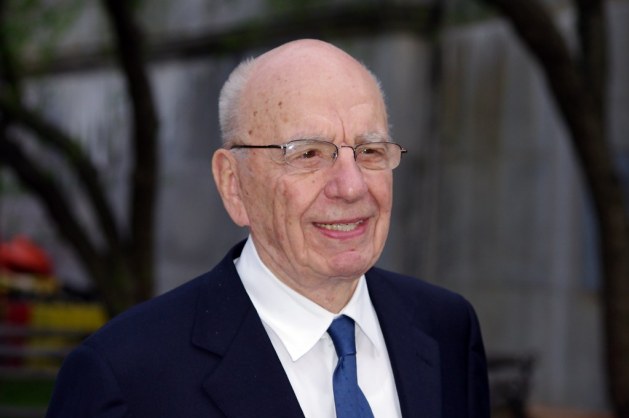
Photo (cc) 2015 by Johnny Silvercloud
Previously published at WGBHNews.org.
Want to fight climate change? Tell your elderly relatives to turn off Fox News.
A new survey about global warming by the Pew Research Center provides reasons for optimism. A majority of Americans favors more federal action on environmental issues, including climate change. Most respondents said we should put more emphasis on developing alternative energy sources than on expanding our use of fossil fuels such as oil, coal and natural gas.
But there is one huge caveat: older, conservative respondents aren’t inclined to do much of anything — and many of them continue to believe the fiction that climate change has more to do with natural causes than with human activities.
“A strong majority of liberal Democrats (84%) say human activity contributes a great deal to climate change, with near consensus among them that human activity contributes at least some amount to climate change (96%),” according to the survey report. “In contrast, about half of conservative Republicans (53%) say human activity contributes a great deal (14%) or some (39%) to climate change. Another 45% of this group says humans play not too much or no role in climate change.”
Indifference to doing something about climate change, the survey adds, increases with age — the older the respondents, the less likely they are to want the government to take action.
Although Pew doesn’t say it, these findings coincide perfectly with the demographics of Fox News, which caters to older, conservative viewers. Cable news viewers in general are old — MSNBC, which appeals to liberals, has an even older audience than Fox. But it’s Fox, not MSNBC, that pumps out a steady stream of climate-change denialism and skepticism.
Earlier this year, the Bulletin of the Atomic Scientists reported on findings that showed rejection of climate science among ordinary people is uniquely American — and that Fox News was the likely reason.
Citing survey data, the author, Dana Nuccitelli, wrote that “Republicans who watch Fox News are more than twice as likely to deny human-caused climate change than Republican non-viewers, and 62 percent of Republicans watch Fox News.” Nuccitelli added that the data “suggests that the presence of Fox News and other conservative media outlets may be the primary explanation for why climate denial is more prevalent in the United States than in other developed countries.”
And it’s further proof that Rupert Murdoch, whose family runs Fox News, is one of the most dangerous people on the planet.
Looking for some specifics? In just the past few months, Fox prime-time host Sean Hannity has mocked U.S. Rep. Alexandria Ocasio-Cortez, D-N.Y., for linking the severity of Hurricane Dorion to climate change. Another host, Tucker Carlson, referred to the September climate strike as “adults hoping to exploit children for political purposes.” And Laura Ingraham called climate activism by Greta Thunberg and others “globalist” and “socialism in a new mask.”
It sounds ludicrous. But when your Uncle Bert and Aunt Gertrude watch hours upon hours of this stuff, the effect is to produce a combination of anger, cynicism and inertia that makes it nearly impossible to break through with serious ideas about how to save the planet. And let’s not forget that Fox functions as state television for a president who declared on Twitter in 2012 that global warming was a hoax perpetrated by the Chinese.
Nor is there anything new about Fox News viewers believing things that just aren’t true. Last spring, a poll by NBC News and The Wall Street Journal found that solid majorities of respondents who get most of their news from Fox believed that President Trump was telling the truth about the Russia investigation. They also said they weren’t worried about future Russian interference in U.S. elections. Half of Fox News viewers believed that the Mueller report had cleared Trump of wrongdoing — even though Mueller drew a virtual road map for the House to impeach Trump on charges that he obstructed the investigation.
Then again, you could go back to the early days of the war in Iraq, when 67% of Fox News viewers believed the falsehood promoted by the Bush-Cheney administration that Saddam Hussein had worked closely with Al Qaeda.
Despite overwhelming scientific consensus that time is running out to avoid the worst effects of climate change, the level of greenhouse gases in the atmosphere continues to rise. As one of the two worst polluters (China is the other), the United States has to lead if anything is going to be accomplished. Unfortunately, Trump’s response has been to pull out of the Paris climate-change accords and to torment California for taking action at the state level.
The role of Fox News in preventing serious action on climate change shouldn’t be underestimated. From propping up the Trump presidency to mocking science as a bastion of liberal elitism, Fox is hastening the day when parts of the planet will become uninhabitable.
The Pew survey shows that a majority of Americans wants to do something serious about climate change. It also shows that the same Foxified minority keeping Trump in office is blocking the wishes of the majority. It’s further proof that our media system, like our electoral system, is undermining our democracy.
Talk about this post on Facebook.








